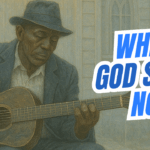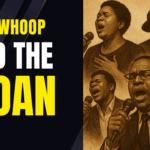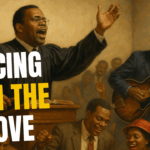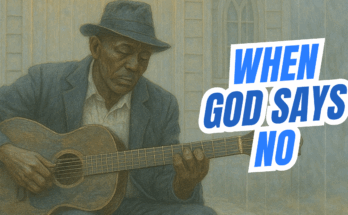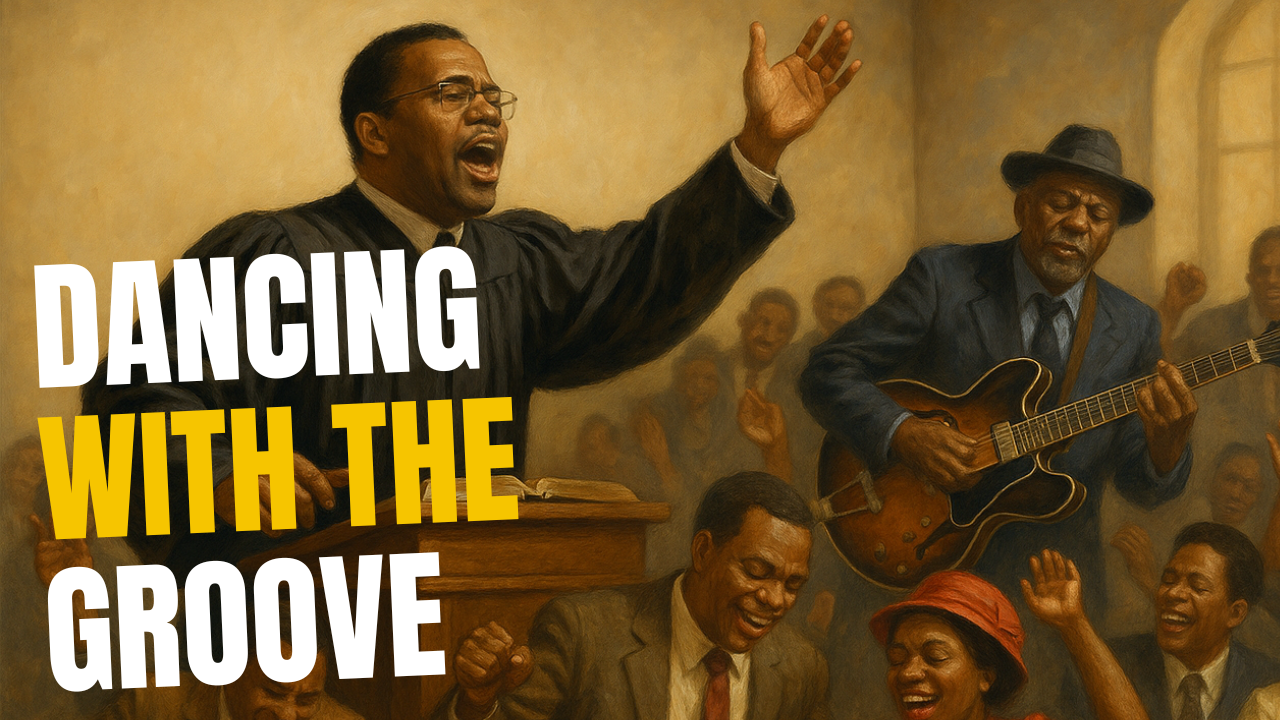As an Amazon Associate I earn from qualifying purchases.
Too many sermons hang hope on two hooks. Some promise heaven tomorrow — a mansion over the hilltop, streets of gold, no more crying. Others promise a hookup tomorrow — the new job, the miracle healing, the blessing that will fix everything. But what about today? And what if that hookup never comes?
That gap — between heaven far off and miracles delayed — is where the blues breathes. The blues teaches us how to live when heaven feels distant and the hookup never arrives. It shows us how to sing, endure, and survive when today still looks like yesterday.
What Do We Mean by Eschatology?
I’m not here to lay out prophecy charts or debate the end of all things. That’s one kind of eschatology.
But blues theology has its own version. It’s not about timetables or trumpets. It’s about the future you can feel in the dirt of today. It’s about how survival now shapes tomorrow. It asks: what does it mean to keep hope alive when tomorrow looks a lot like today?
When Heaven and the Hookup Don’t Show Up
The spiritual Soon I Will Be Done with the Troubles of the World is not a blues song, but it carries the same ache the blues names. On its face, it longs for heaven. Yet in slavery times, “soon” might have meant freedom on this side — an escape route on the Underground Railroad.
That’s the tension of blues hope: it sharpens the pain of today even as it keeps you alive for tomorrow.
Romans 8:23 — “We groan inwardly as we wait eagerly for our adoption.”
But what happens when neither heaven nor the hookup comes through? John the Baptist asked Jesus from prison: “Are you the one?” (Matthew 11:2–6). He wanted a jailbreak, a miracle. Instead, the answer came back to him right there in the cell.
“The blind see, the lame walk, the poor have good news preached… and blessed is the one who does not stumble because of me.”
Yes, John, I am the one. And yes, John, you will stay in prison. That’s blues eschatology. The hookup doesn’t always look the way you expect. Sometimes God’s blessing is presence in the storm, not escape from it.
Survival as Tomorrow
That’s why the blues redefines tomorrow. Tomorrow isn’t heaven. Tomorrow isn’t the hookup. Tomorrow is simply survival.
That’s what Every Day I Have the Blues declares. Each day hurts, but each day the singer finds his voice again.
Lamentations 3:22–23 — “Because of the Lord’s mercies we are not consumed… his mercies are new every morning.”
And the greatest blessing isn’t escape — it’s presence. Precious Lord, Take My Hand is gospel, not blues, but it sings the same truth: “Through the storm, through the night, lead me on to the light.”
Psalm 23:4 — “Even though I walk through the valley of the shadow of death, I will fear no evil, for you are with me.”
Trouble and Prophetic Survival
The blues doesn’t deny trouble. It stares it down. The gospel chorus I’m So Glad Trouble Don’t Last Always is not blues either, but it illustrates the same witness. Trouble may last a while, but it won’t have the final word.
Psalm 30:5 — “Weeping may endure for a night, but joy comes in the morning.”
And sometimes the songs lean forward. Sam Cooke’s A Change Is Gonna Come and Donny Hathaway’s Someday We’ll All Be Free are soul anthems, not blues. But they live in the same eschatological space — weary voices refusing to bow, declaring that dignity and justice must rise.
Luke 4:18 — “The Spirit of the Lord is upon me… to proclaim freedom for the oppressed.”
And then there are times when no light breaks through at all. Sometimes I Feel Like a Motherless Child is a spiritual, not a blues tune, but it mirrors the blues lament: pure ache, no triumph.
Psalm 13:1 — “How long, O Lord? Will you forget me forever?”
Even lament is testimony. To cry out is to say: I’m still here.
How to Survive When Today Looks Like Yesterday
So how do you survive when nothing changes? When today feels like yesterday, and tomorrow threatens to be the same? The blues teaches us:
- Reframe survival as testimony. It’s not failure, it’s grace. Lamentations 3:22.
- Lean on God’s presence, not just promises. Heaven may be distant, miracles may delay, but presence is here. Psalm 23:4. Precious Lord embodies this prayer.
- Sing it out. Every Day I Have the Blues and Motherless Child show survival comes through naming the pain.
- Trust trouble’s shelf life. Psalm 30:5 says weeping endures for a night. Trouble Don’t Last Always turns that into a shout.
- Keep dignity and hope alive. Cooke and Hathaway remind us that survival is more than breathing — it’s lifting your head when everything tries to bow you down.
Closing Word
Blues eschatology won’t let you only preach heaven later. It won’t let you only preach hookup now. It demands you preach God’s blessing in survival — when the miracle hasn’t come, when heaven feels far, when today looks just like yesterday.
2 Corinthians 12:9 — “My grace is sufficient for you, for my power is made perfect in weakness.”
The eschatology of the blues is not just heaven someday, and not just miracles today. It is God’s blessing in survival — when nothing has changed, but you’re still here. Still standing. Still singing.
And as Gloria Gaynor’s unexpected blues gospel anthem reminds us: no matter how I am treated, no matter what I face — I will survive.
Amazon and the Amazon logo are trademarks of Amazon.com, Inc, or its affiliates.


